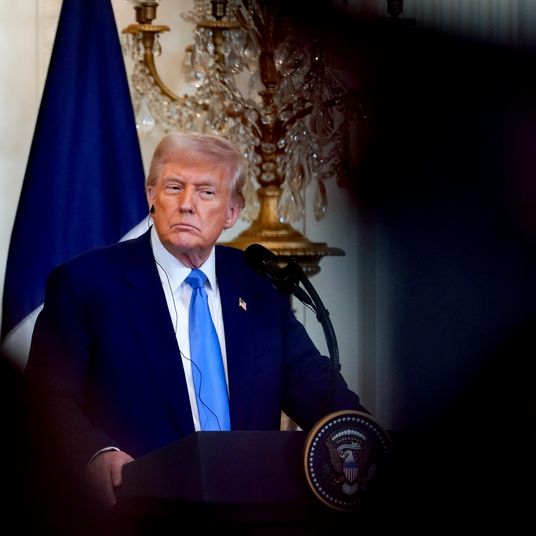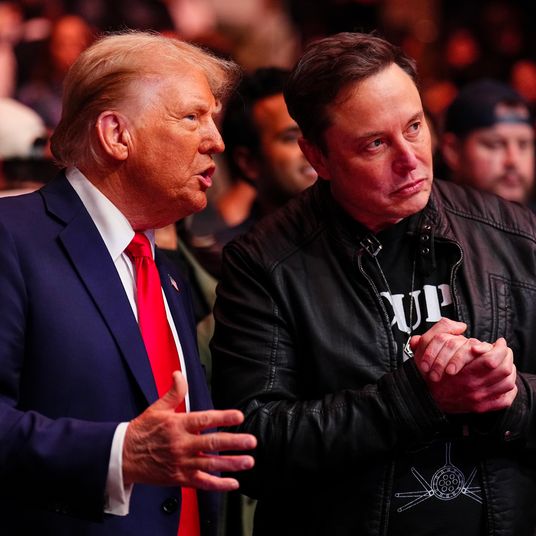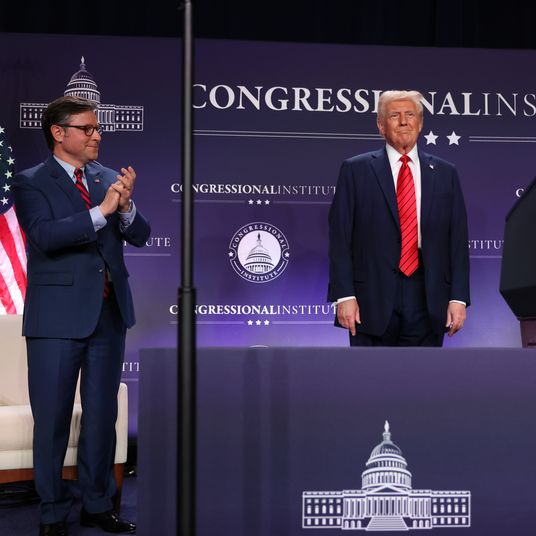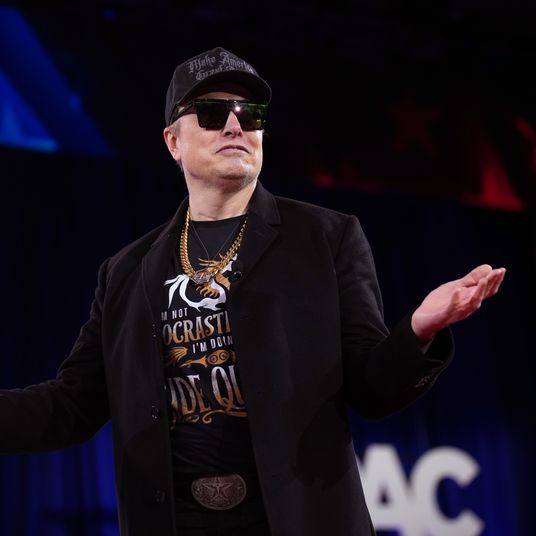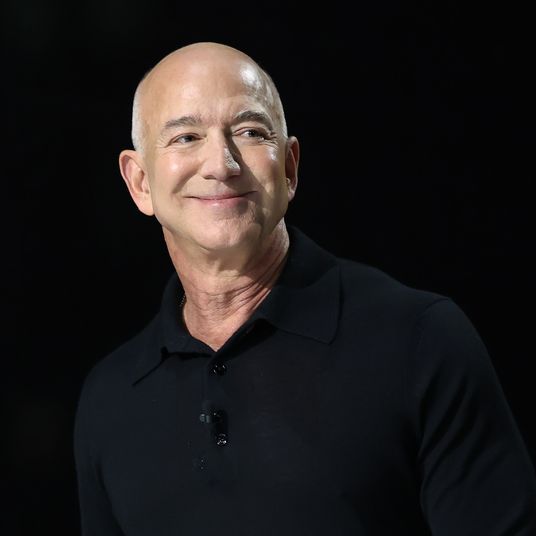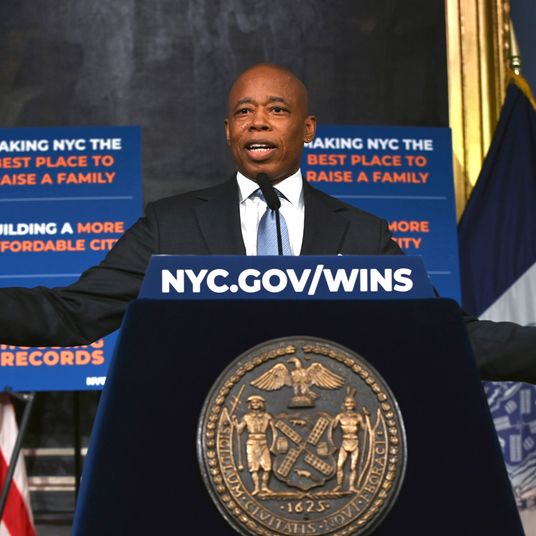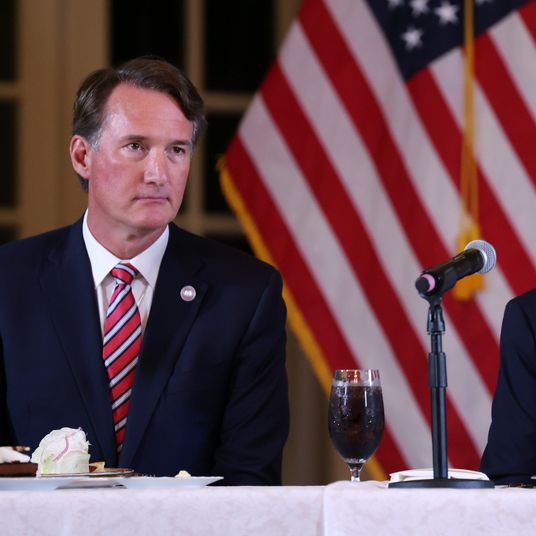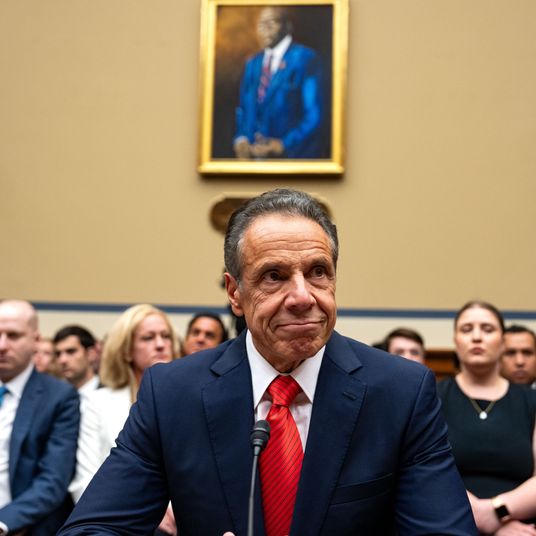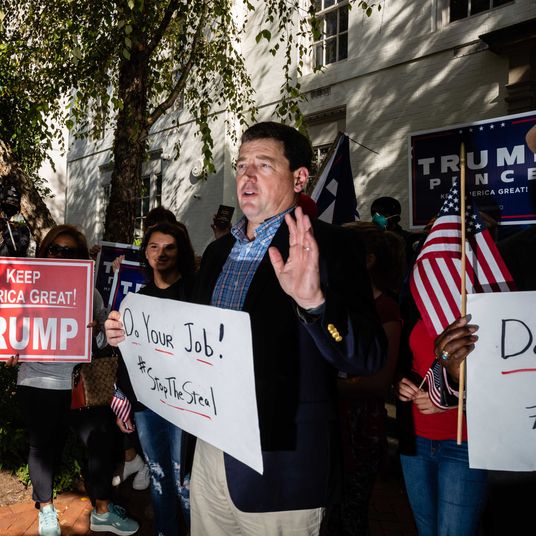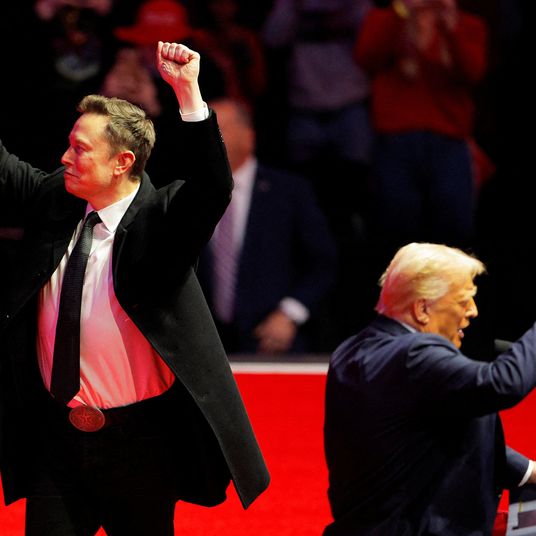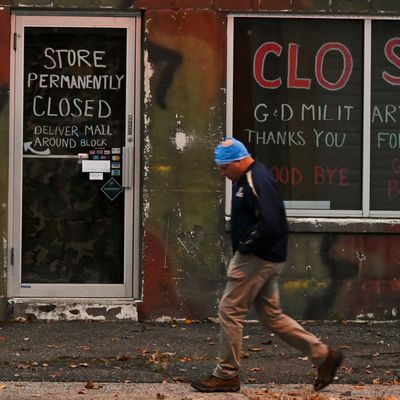
For eight months now, Mitch McConnell has been preventing the federal government from providing fiscal aid to America’s state and municipal governments. The Senate Majority Leader and his far-right colleagues have obstructed such aid even though:
The Chamber of Commerce and National Governors Association (NGA) have both lobbied Congress in favor of fiscal relief, while Republican senators from Louisiana and Mississippi sponsored a bill that would have delivered $500 billion worth of it.
The federal government can borrow money at near-zero interest rates and print the world’s reserve currency, while states and cities cannot. Thus, if Uncle Sam does not share his fiscal capacity with America’s sub-federal governments, they will need to raise taxes or slash spending — precisely what you don’t want the public sector to do amid low inflation and high unemployment.
Since fiscal aid to states is a top Democratic priority, opposing the policy meant killing any prospect for a second stimulus package, which meant allowing many of the CARES Act’s relief measures to expire before Election Day, which very well might have cost Donald Trump reelection.
McConnell articulated the right’s rationale for opposing fiscal aid in mid-April, when he suggested cash-strapped states should file for bankruptcy, and then circulated a memo of anti-fiscal-relief talking points titled, “Stopping Blue State Bailouts.” That phrase, and the idea it conveyed — that delivering fiscal aid to states really meant bailing out corrupt Democratic machines — came to dominate right-wing media coverage of the issue, thereby reinforcing the Senate GOP’s intransigence.
This week, a bipartisan group of senators reached agreement around a framework for a $908 billion COVID relief package. The Democratic Party’s congressional leaders have endorsed the outline. It includes $160 billion in aid to states, a small fraction of what some congressional Republicans and governors have called for. And yet, as of this writing, McConnell has refused to endorse the framework, while Senate conservatives have lambasted it for its provision on state aid. Florida senator Rick Scott suggested he might oppose such legislation, as it would “spend hundreds of billions of dollars in taxpayer money to bail out wasteful states.”
It’s not often that one hears a senator disparage the state they represent. Yet that is, apparently, what Scott did Thursday. After all, few “wasteful states” need federal aid more desperately than his own. As the Orlando Sentinel reports:
Facing a $2.7 billion budget shortfall, legislative leaders are searching for ways to raise new revenue, although not through tax hikes, along with cuts to education and health care to fill the gap when they return to the Capitol in March.
The shortfall for the budget year that begins in July was caused by a series of falling dominoes, starting when the coronavirus pandemic shut down the tourism industry in the spring and early summer.
Six of the seven states projected to suffer the largest revenue declines over the next two years voted for Donald Trump in 2020, and are run by Republican governors, according to a report from Moody’s Analytics. Florida is among America’s most cash-strapped states, facing a revenue decline of more than 10 percent.
Rick Scott is not unaware of budget realities in his home state. And McConnell isn’t ignorant of fiscal woes in the red, oil- and gas-producing states of Louisiana, Wyoming, Alaska, and North Dakota. The “blue-state bailout” lie isn’t solely intended to justify the GOP’s stance to any swing voters who might be paying attention to stimulus talks; it’s also designed to hide the party’s true priorities from its own constituents.
The conservative movement has been trying to shrink the fiscal capacity of state governments for decades. But when they’ve actually tried to implement this agenda forthrightly — as they did in Sam Brownback’s Kansas — many GOP voters discovered that they did not actually support “small government,” if that phrase was defined as “defunding public education to make it easier for wealthy business owners to renovate their McMansions.”
But the pandemic provides conservatives with a means of forcing austerity on nearly every state in the union, while making their work look like an act of God. To the lay observer, the Republican Party didn’t force Florida to cut education funding, the pandemic did.
Notably, it isn’t just school funding that Republicans are indirectly forcing states to cut. One maddening irony of contemporary American politics is that the “Defund the Police” protest movement was seen as a liability for Joe Biden in the 2020 election, even though the actual policy of the Democratic Party is to provide states and cities with roughly $1 trillion in federal aid — more than enough to avert deficit-induced cuts to police budgets — while the actual policy of the Republican Party is, in effect, to cut the number of working police officers in the United States. As the New York Times reports:
In Kansas City, Mo., with a municipal budget of $1.7 billion, the city manager has asked each department to draft a plan for cuts of more than 11 percent. That could mean laying off 200 police officers from the 1,300-member force and 180 firefighters and emergency medical technicians, said Dan Fowler, a City Council member.
“This is one of the things that keeps me up at night,” Mr. Fowler said, thinking about the impact on the city’s half a million residents. Such cuts could end up closing one or two police stations, even though crime is rising, he said.
In a well-functioning republic, it would not be politically viable for the Republican Party to force unwanted austerity on its own voters through incessant lying. Fortunately for the GOP, the United States is no such polity — and the conservative movement is doing its utmost to ensure that we never will be.








